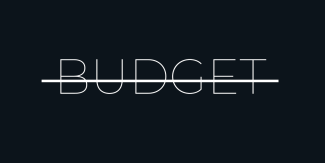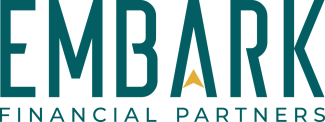
Budgeting is a Four-Letter Word
#TakeAction
There aren’t many words in the financial lexicon that carry negative feelings quite like the word “budget”. It lives in the same space as calorie counting and is just about as effective. The hard truth is most financially successful people don’t budget and most people with healthy eating habits don’t count calories. What financially successful people DO have is a set of established behaviors or systems that lead them to success without exerting their willpower and time tracking the small details of their day-to-day activities. Here are three ideas to help manage cash flow that are easy to implement and stick with over the long run.
| Focus On Your Macros
Take inventory of your outflows in a few key groups. This is a simple system that can be done on paper in less than 5 minutes for any household. There are also a host of online tools and apps that can help with this step. However, beware of free apps and services in this space as they are built on a business model that sells your very personal spending data to advertisers. I recommend starting with three categories.
- Future: Systematic investments and savings for retirement and other goals. This should be a minimum of 10% of your gross income.
- Fixed: This is the money that you’ve already committed to spend and is typically made up of a few large items (e.g, your mortgage/rent, car payment, insurance, services, and subscriptions). If it auto-debits or has a due date, it goes here.
- Lifestyle: Everything else. Income – Future – Fixed = Lifestyle
Check in on these macros monthly or quarterly. Taking an occasional look at these numbers arms you with a good sense of direction in your financial life and will inform your decisions over the next month or quarter.
| Wall Off Your Macros into Separate Accounts
It’s no secret that savings behaviors are more effective when deducted directly from your paycheck. It’s far too easy to see a pool of money in a checking account and then struggle with the mental division of how that pool should be spent. This challenge leads to under-saving and credit card balances that carry month to month. Most employers can direct deposit your pay into multiple banking and investment accounts. Use this and auto-drafts to your advantage to simplify spending decisions and systematize your savings.
Create one bank account for your fixed macro and set up all your payments from that account. Match that planned total with a per paycheck direct deposit to resupply the account. Make sure you keep an extra buffer of at least one month of planned expenses in the account. Create another for your savings goals and auto-fund it with a percentage of your pay. Fund the remainder of your check into a checking account for lifestyle expenses. Making lifestyle spending decisions is easier with this system as you have a dedicated pool or balance you can check any time.
| Focus on Growing Your Income Base
Spending gets most of the attention in cash flow discussions because it is simpler to address in a short period of time. Income growth is exponentially more impactful but can be very challenging. Limited time, comfort-zones, and skills each can get in the way of taking a step forward with income. Make it a habit to review your employment situation and explore potential opportunities at least semi-annually. Find mentors in and outside of your area of expertise who can bring additional career path perspective. Set timeframes and expectations of your employment situation and work towards them.
There are many ways to bring your cash flow into focus without the draining exercise of detailed budgeting and expense tracking. Never forget that the best system is the one that works for you! Book a meeting with an Embark Wealth Advisor today for a free consultation to improve your financial processes and goals.

